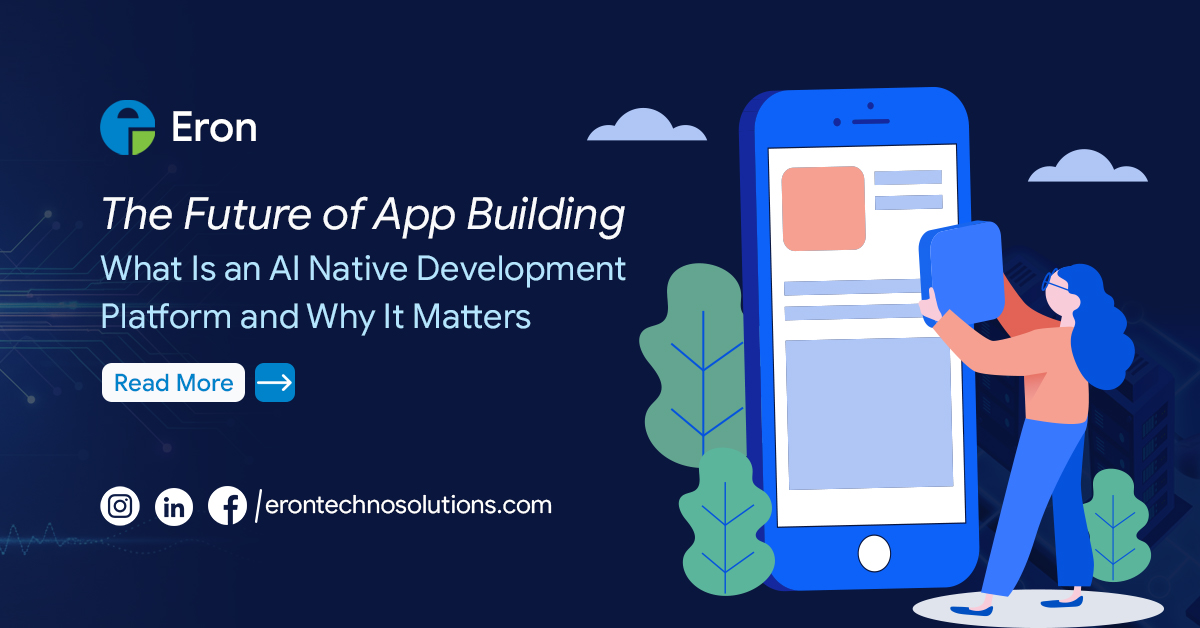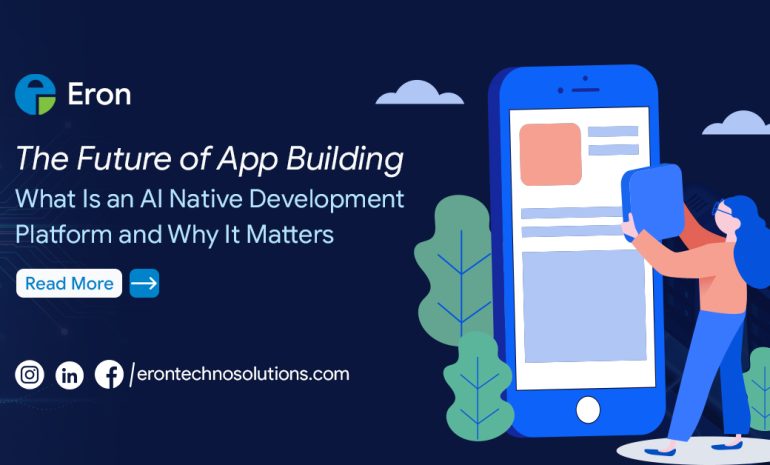What Is an AI Native Development Platform?
An AI Native Development Platform is a smart software-building environment where Artificial Intelligence (AI) is built into the core of the platform, not added later as a plugin.
In simple terms:
It’s a platform that can think, assist, and even code with you.
Traditional development platforms rely on human coding and manual logic.
But an AI native platform understands natural language, predicts what you want to build, and creates or improves your app using AI power.
How Does It Work?
AI Native Development Platforms use a mix of technologies like:
- Machine Learning (ML) – learns from your coding patterns.
- Natural Language Processing (NLP) – understands your instructions in plain English.
- AI Agents – automatically generate, test, and optimize code.
- Cloud + APIs – integrate your app with databases and external services.
Example:
You type:
“Create a login page with Google sign-in and dark mode.”
The AI platform automatically:
- Builds the front-end design.
- Writes the login logic.
- Connects APIs for Google authentication.
- Tests and fixes any missing dependencies.
This means developers spend less time on repetitive work and more time on creative and strategic tasks.
Examples of AI Native Development Platforms
Several powerful AI Native Development Platforms are already transforming how developers create and manage software today. Each one brings unique features that make coding faster, smarter, and more accessible.
One of the most popular tools is GitHub Copilot, developed by Microsoft. It acts as an intelligent AI assistant that suggests and completes code as you type. Copilot helps developers write cleaner, faster code while reducing errors — almost like having a second coder working beside you.
Another major player is Builder.ai, a platform designed for both developers and non-developers. It allows anyone to create mobile or web applications simply by describing what they want in plain language. This makes app creation easier for startups or small businesses that don’t have dedicated technical teams.
Then there’s Cognition Labs’ Devin, which is known as the world’s first fully autonomous AI software engineer. Devin can plan, write, test, and deploy entire software projects with minimal human guidance — a huge leap forward in automated software development.
Replit Ghostwriter is another example, offering AI-powered coding and debugging directly within the Replit environment. It helps developers understand their code better and suggests efficient solutions instantly.
Finally, AWS CodeWhisperer from Amazon brings AI-based code generation to enterprise-scale applications. It integrates with cloud services and automates repetitive coding tasks, improving speed and scalability for large teams.
Together, these platforms show how AI Native tools are changing the software landscape — making development faster, more intuitive, and less dependent on manual effort.
How It’s Different from Traditional Platforms
Unlike traditional development environments, which rely heavily on manual coding, testing, and tool-switching, AI Native Development Platforms integrate automation directly into the workflow.
In a traditional setup, developers spend hours writing repetitive code, debugging, and testing features manually. Every update or feature release requires significant time and effort.
AI Native Platforms change that completely. They use artificial intelligence to assist in code generation, testing, optimization, and even deployment — drastically reducing the workload on developers. Instead of juggling multiple tools, you get an all-in-one intelligent environment where everything is automated and connected.
The result is a faster, smarter, and more efficient development cycle. Developers can focus on creativity and problem-solving while AI handles the routine, repetitive tasks — leading to innovation at lightning speed.
Why It’s Useful for Humans
AI Native Platforms are not about replacing humans —
they’re about empowering developers and creators.
Here’s how they help 👇
1. Faster App Creation
AI can build prototypes or features in minutes that would take humans hours or days.
2. Easier for Non-Coders
Even people with little coding knowledge can build working apps using natural-language prompts.
3. Smarter Code
AI suggests best practices, optimizes performance, and reduces bugs.
4. Lower Costs
Fewer development hours mean less expense for companies and startups.
5. Increased Productivity
Developers can focus on creativity, innovation, and solving real problems — not repetitive tasks.
How It’s Changing the Future
AI Native Development Platforms mark the next evolution in software creation — just like smartphones changed how we use the internet.
In the near future:
- Apps will be built automatically using AI blueprints.
- Developers will guide AI instead of doing everything manually.
- Companies will create and deploy apps 10x faster than today.
In short, AI won’t just assist — it will co-create.
Final Thoughts
The AI Native Development Platform is not a concept of tomorrow — it’s happening right now.
It combines speed, intelligence, and creativity to make app building easier for everyone — from students and startups to large enterprises.
The future of software is AI-powered, human-guided, and innovation-driven.
And this is just the beginning of that revolution.
#AINative #AIDevelopment #AIinTech #AppDevelopment #FutureOfWork #ArtificialIntelligence #MachineLearning #Coding #Innovation #SoftwareDevelopment #GitHubCopilot #BuilderAI #DevinAI #TechTrends #DigitalTransformation


